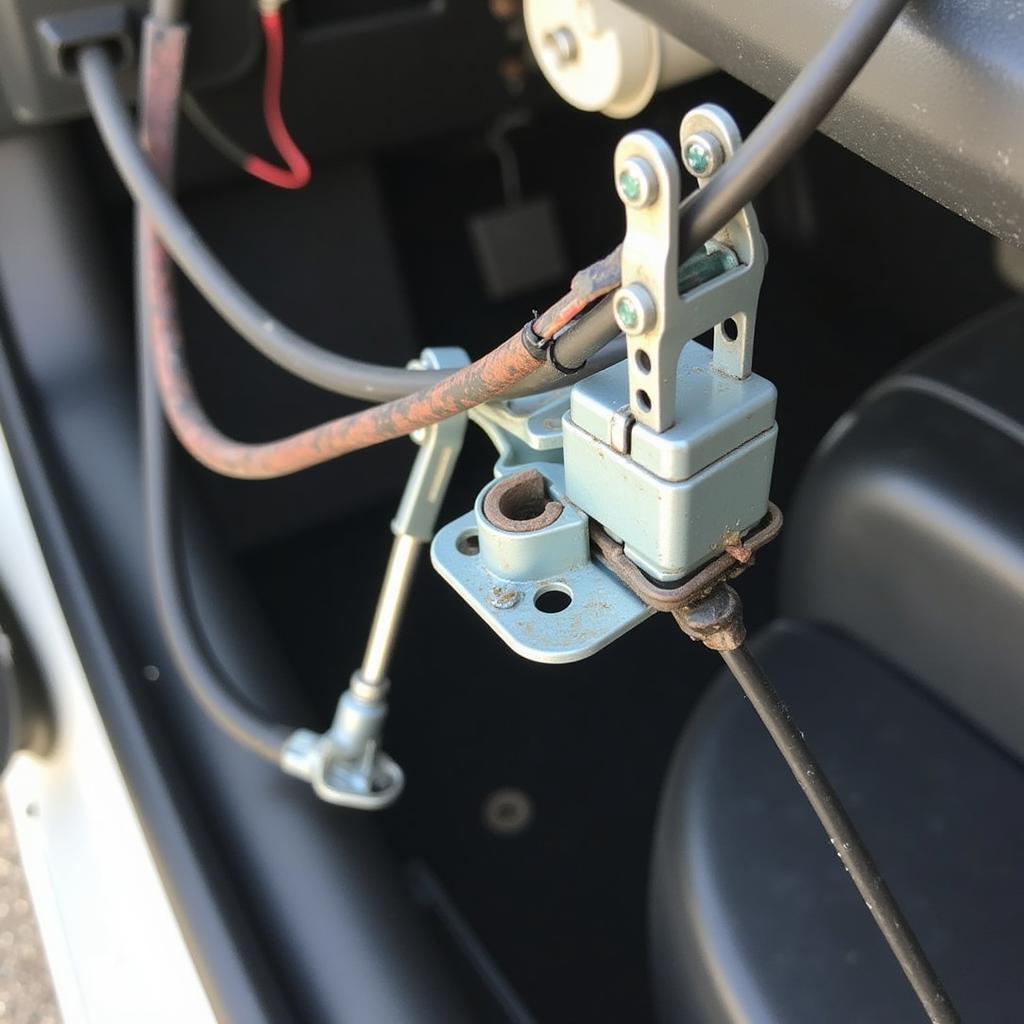A sputtering Club Car can quickly ruin a relaxing day on the course or around the neighborhood. Often, a club car spark plug problem is the culprit. This guide offers a comprehensive approach to diagnosing and fixing club car spark plug issues, covering everything from basic checks to more advanced troubleshooting techniques.
First, let’s discuss some common symptoms of spark plug problems. These can include difficulty starting, rough idling, misfiring, and decreased power. If you experience any of these, checking your spark plugs should be high on your list of diagnostic steps. Identifying the root cause is the first step toward a reliable fix. One common mistake is neglecting regular maintenance, such as checking the gap and replacing worn spark plugs. troubleshooting car engine problems can offer more general engine diagnostic tips.
Why are My Club Car Spark Plugs Failing?
Several factors can contribute to club car spark plug problems. A fouled spark plug, often caused by oil or carbon buildup, is a frequent issue. Incorrect gap spacing can also prevent the spark from igniting the fuel mixture properly. Worn electrodes, a natural consequence of use, can also lead to performance issues. Sometimes, the problem isn’t the spark plug itself, but the wiring leading to it. A damaged spark plug wire can disrupt the electrical current, preventing the plug from firing.
How to Fix Club Car Spark Plug Issues: A Step-by-Step Guide
- Gather your tools: You’ll need a spark plug wrench, gap tool, and a wire brush. A multimeter can be helpful for checking the spark plug wire.
- Locate the spark plug: Consult your Club Car’s owner’s manual for the precise location.
- Remove the spark plug wire: Gently pull the wire off the spark plug.
- Remove the spark plug: Use the spark plug wrench to carefully unscrew the spark plug.
- Inspect the spark plug: Check for fouling, wear, and damage. A healthy spark plug will have a light brown or grayish color on the electrode. Black, oily deposits indicate fouling.
- Clean or replace: If the plug is fouled, clean it with a wire brush. If the electrodes are worn or damaged, replace the spark plug.
- Check the gap: Use a gap tool to ensure the gap is within the manufacturer’s specifications.
- Install the new or cleaned spark plug: Carefully thread the spark plug back into the engine and tighten it with the spark plug wrench.
- Reattach the spark plug wire: Push the wire firmly onto the spark plug.
“Regular maintenance is key,” says veteran Club Car mechanic Robert Davis. “A simple spark plug check and replacement can prevent many headaches down the road.”
gas club car problems offers further information on potential issues with gas-powered Club Cars. Don’t forget to check your owner’s manual for model-specific instructions and recommended spark plug types.
What if the Problem Persists?
If you’ve replaced the spark plug and the problem continues, the issue might lie elsewhere. Consider checking the ignition coil, the voltage regulator, or other components of the ignition system. Sometimes, a more in-depth diagnosis is needed to pinpoint the exact cause. club car 2000 ds intermediate sprak problem may offer specific guidance for certain models.
“Don’t overlook the simple things,” advises Sarah Miller, an electrical systems expert. “A loose wire or corroded connection can mimic spark plug problems.” Remember, if you’re unsure about any step, it’s always best to consult a qualified mechanic. selling a car as is disclosing problems in pa offers insights into selling a car with existing issues, if you decide to upgrade.
Conclusion
Fixing a club car spark plug problem is often a straightforward process. By following the steps outlined above, you can quickly get your Club Car running smoothly again. Regular maintenance, including spark plug checks and replacements, can prevent many issues and keep your Club Car in top condition. Remember to check for proper gap spacing and address any wiring issues. If the problem persists, don’t hesitate to seek professional help.
Need further assistance? Connect with AutoTipPro at +1 (641) 206-8880 or visit our office at 500 N St Mary’s St, San Antonio, TX 78205, United States. We’re here to help get you back on the road, or back on the course!
car rpm problems might be helpful if your Club Car also experiences RPM fluctuations.





Leave a Reply